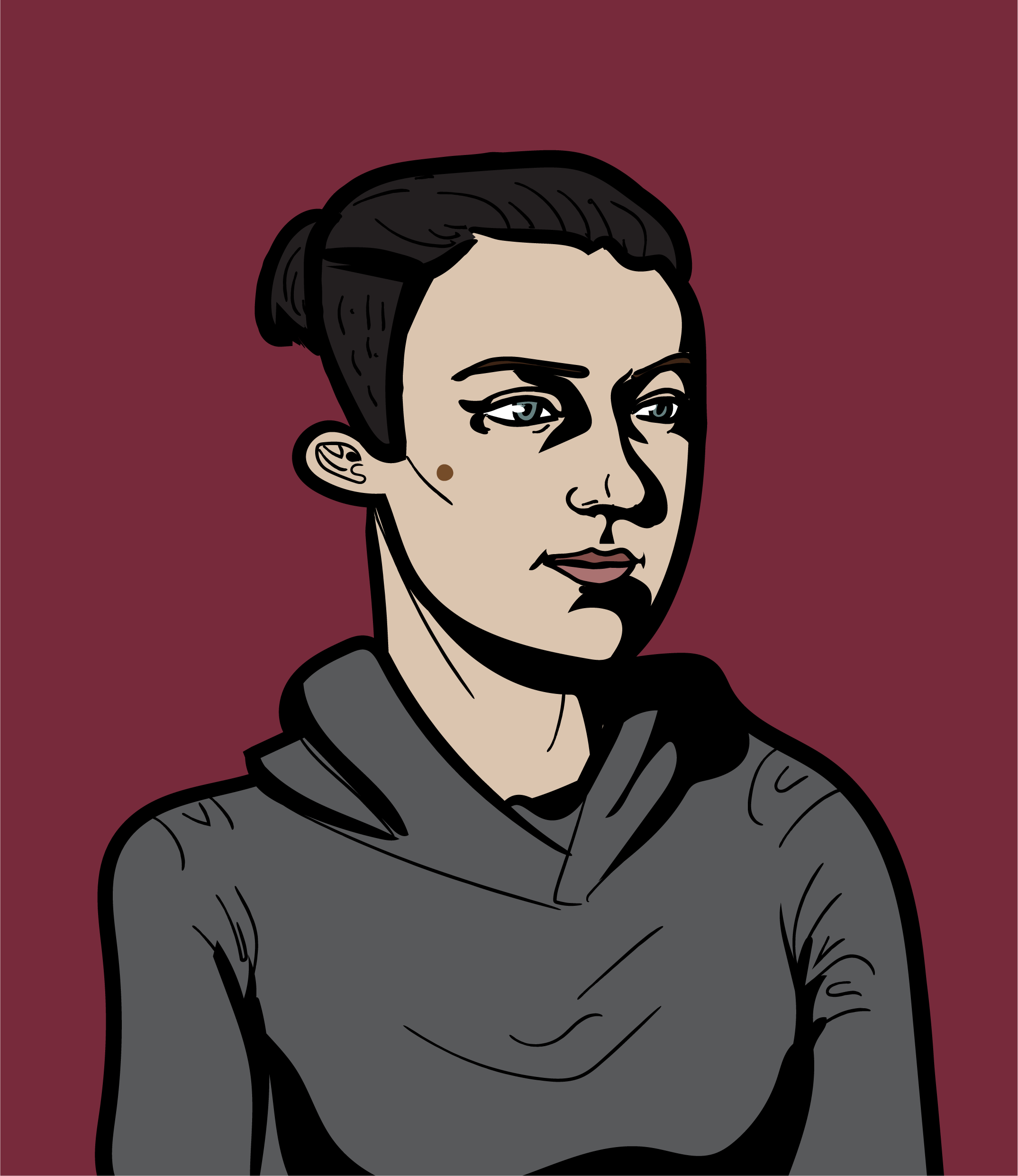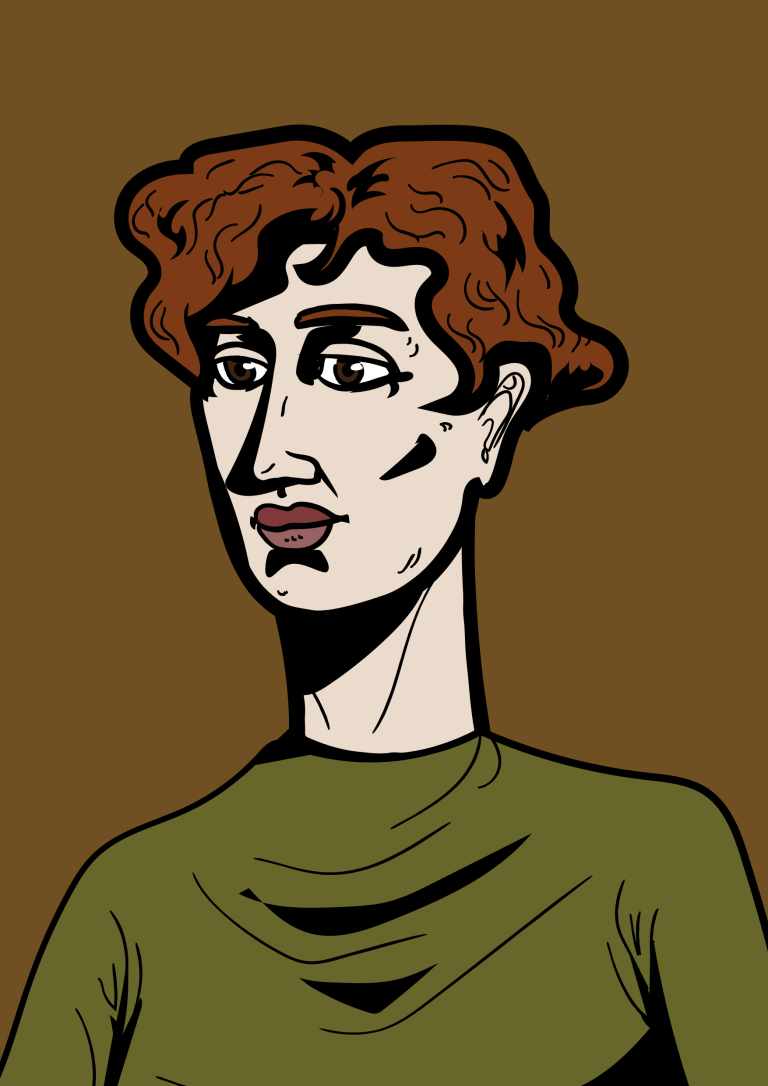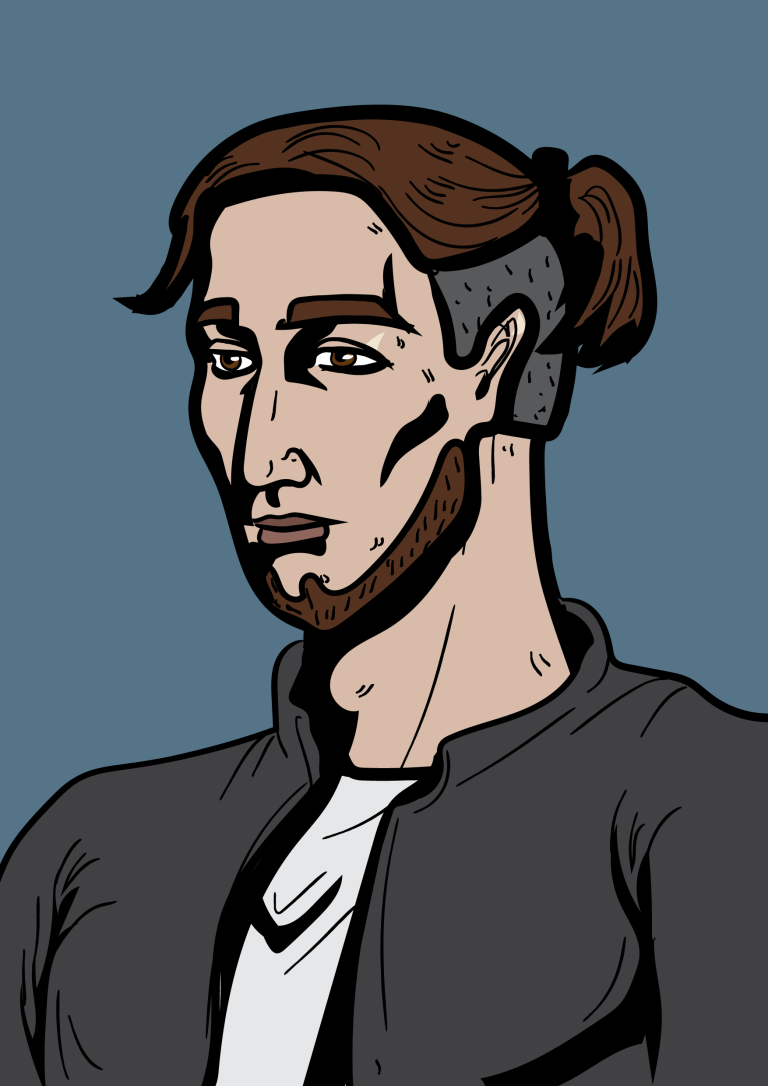
My name is Anna, I am 43 years old and I am a lesbian. I think I remember the last day before the war. But now I understand that it is difficult for me to single out any specific events and say exactly whether they occurred on the day before or the day of the full-scale invasion and at what time of day…
The day before the start of the full-scale invasion, I was in Odesa. My partner and I (my partner was in Kyiv) discussed the possibility of war, and what to do in case it does start. There were conversations about what to do in the event of a full-scale invasion long before February 24 so we made our own plan of actions back in January.
The plan, generally, was clear and simple. We planned to act according to how the situation would unfold. We planned to move somewhere in the center of Ukraine: either to the Khmelnytskyi region, or somewhere nearby. We have two cats and a dog, so we thought we’d rent a separate house somewhere. We also discussed that before leaving, we would need to replace the locks on the front doors in our apartment, because they were loose.
I thought we were ready. But when the full-scale invasion began, it turned out that none of what we planned worked. Most likely because my partner and I were in different cities. And the main problem at that time for me was the ability to get to the capital. The second challenge for me was deciding how our public organization would function in war conditions. Because at first it was generally unclear what we could do.
But despite the confusion, our organization started acting immediately, on the first day. We operated in all regions we could reach: in Odesa, in Kyiv, in Vinnytsia. In Odesa, I helped people with their evacuation: I advised on the evacuation, organized transportation, and so on. We did what we do best: we connected people. There were many applications from people who were scared for their children and tried to leave the country quickly. We also came across a series of complaints about cases of fraud among carriers. For example, there was a lesbian couple who were traveling with a child, a sick relative, and pets that ended up on the Moldova border, as the driver decided to increase the fare threefold. And they didn’t have that amount of money. We were looking for ways to help them cross the border and make it there safe. One time we were urgently looking for winter clothes and shoes for guys from the Kherson region because they had to hitchhike with multiple cars with no belongings.
A little later, we launched a crisis assistance program with food and medicine. In Odesa, there was also an emergency program for those who fled the occupied territories.
People called and texted me days and nights. I had no breaks for lunch or sleep. For the first few months, I consulted no less than 20-30 people a day. These were requests both to me personally and in the organization’s private messages. There were a lot of questions about evacuation, about LGBT-friendly spaces in Poland, Czechia, Hungary, and Germany. All of this required a lot of communication from me.
Then, in the first months of a full-scale invasion, it seemed that we were not doing enough. However, now that a year and a half has passed, I understand that we have done a lot, especially in conditions where most institutions, including state ones, simply didn’t work. And now I understand another thing: we have done even more than we could have expected from ourselves.
Now it seems strange to me how I could do all this. The adrenaline from a constant stream of news kept me going: the events in the south, the center, what the invaders were doing, and what our people were doing. And you saw all this in real-time almost. It felt like I was a part of a group that fought back. And I think the same feelings arise when you first take part in Pride events: you feel the support of a large group of people who are united by common values, experiences, and feelings.
However, the fact that my partner and I were in different cities still negatively affected my mental state. Unfortunately, many Ukrainian people face this problem. The railway was, it seems, the first civilian infrastructure to face the consequences of enemy attacks. The trains either didn’t run at all or were late. It was difficult to predict what would happen, and whether a train you boarded would reach the final station at all.
It was difficult for me at that time to decide how to act, because it was clear that the south of Ukraine would be the Russians’ primary target. I understood that there would be attempts to seize this territory, to go to Transnistria. And at that time, it seemed very important for me to stay in place and do something to support the community. But in the end, I decided to go to Kyiv to the person I consider family. I returned to Odesa and Mykolaiv for a week or two every month. And so I spent the whole year of 2022 on such trips.
Even though there were already Russian troops near Kyiv, the city was shelled from three sides, it seemed to me that the chances of Odesa being occupied were much higher than the risk of occupation of Kyiv. My friends who had connections with the Security Service of Ukraine called me on the first night of the full-scale invasion and told me to take certain personal safety measures. In other words, I needed to leave Odesa because, in case it is occupied, my safety would be at risk because of my open pro-Ukrainian position and public activity related to LGBTQ+ issues and participation in the Maidan events.
You might think that such a large number of negative factors would encourage me to think about going abroad. But they didn’t. Only about a year after the beginning of the full-scale invasion, my partner and I discussed this option. But now we stay in Ukraine because this is our homeland and the country I’m attached to. And as long as I have the strength and opportunity to join the defense, I am doing it. In May 2023, we decided to return to Odesa. It was my own choice and also work that I had required my presence here: the expansion of activities in the south, assistance to victims from de-occupied areas, support for people who lost their homes due to the terrorist act on the Kakhovska hydroelectric power station, and much more.
After the victory, I see Ukraine as a European democratic country with a strong and confident society. With an active community. A country that has made its choice towards democracy, equality, and freedoms. A country where a person is respected primarily for their actions. I believe that after the victory, we will be able to create and build a tolerant society protected from discrimination, hatred, and corruption.



